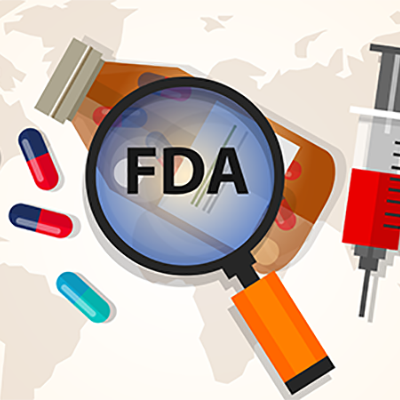May 21, 2021 -- With a $265 billion contribution to the U.S. economy in 2019 alone, the human genetics and genomics industry is thriving and promises to have a major impact in eight areas in coming years, according to a new report by the American Society of Human Genetics (ASHG) published on May 19.
The findings indicate that the sector's annual impact on the U.S. economy has grown fivefold in the last decade. The report outlines at least eight areas of expanding influence for human health and society.
"Twenty years after the Human Genome Project produced the first draft of the human genome sequence, we are seeing in more and more areas the very profound benefits of genetics and genomics to human health," said Dr. Gail Jarvik, PhD, president of ASHG, in a statement. "This report also reveals the significant benefit to the American economy and outlines future areas of functional application and impact for the field."
Economic impact of human genetics and genomics
The direct economic activity generated by the human genetics and genomics industry exceeded $108 billion in 2019 and ultimately supports a total of more than $265 billion across the U.S. economy. The report found that every $1.00 of direct human genetics and genomics activity generated an additional $1.45 in the U.S. economy.
Compared to the previous decade, which included the completion of the Human Genome Project, the effect of the human genetics and genomics field on the U.S. economy has dramatically increased. The economic impact was determined using a 2019 IMPLAN input-output economic impact model of the U.S.
The report estimated that the U.S. government funded $3.3 billion in related research in 2019, mostly from the U.S. National Institutes of Health (NIH), including core NIH human genetics and genomics funding and expanded funding. The authors noted that nearly half of all NIH research funding specifies some connections with human genetics and genomics, highlighting the importance of the field in human biomedical research.
Importantly, the authors also predicted that the cost burden of diseases imposed on the economy by genetic diseases is likely to decrease in the near future due to advancements in genetic and genomic diagnosis and treatments. Yet, they noted that while this is probably true for complex diseases like cancer that have a genetic component, it is currently difficult to quantify their cost burden.
"This field is perhaps one of the best examples of the value of scientific research to our entire economy and of the case for continuing to build on that investment," Jarvik said.
The industry has also made a robust impact on job creation, according to the authors. It supports 89,464 private-sector industry jobs and an estimated 62,710 additional extended industry jobs (related employment share from major pharmaceutical and medical testing/diagnostics companies).
The report specified six core private industry subsectors that drive the economic impact of human genetics and genomics, including analytical/biomedical instruments and equipment manufacturers, small biopharma manufacturers, research and development/biotech firms, medical/diagnostic laboratories, software/information technology/bioinformatics service firms, and genetic counselor/related services.
Including both direct and indirect employment, genetics and genomics research enabled and supported a total of 850,000 jobs in 2019.
Growth areas for human genetics and genomics
The authors identified eight areas where the field is generating functional results and expanding.
- Minable big data (discovery science): Advanced high-speed gene sequencing technologies have enabled the production of exabytes (1 million trillion bytes) of genomic information that can be analyzed using advanced and automated analytical systems to provide unique insights into genome structure and function, as well as association of gene variants with human diseases.
- Identification of predisposition to diseases and disorders. Modern genetic screening such as carrier screening (testing of parents for the presence of gene variants associated with risk of passing down hereditary disorders), prenatal/postnatal testing (testing for genetic predisposition to disease of fetus or newborn), and child and adult testing provide information that enable patients and physicians to make informed decisions.
- Diagnosing diseases, rare diseases, and disorders: Whole genome sequencing in clinical applications has facilitated the diagnosis of diseases and disorders by identifying gene variants associated with specific diseases.
- Rational drug development: Use of biomarkers (genes or gene products) as molecular targets to advance the development of new biopharmaceuticals, especially for rare diseases.
- Precision medicine and targeted therapeutics (pharmacogenetics): In this approach, an individual's genetic profile is used to guide decisions for the prevention, diagnosis, and treatment of disease -- for instance, genetic determination in how individuals respond to specific drugs to determine dose requirement, efficacy, and risk of adverse drug reactions.
- Gene editing and gene therapy: Leveraging gene targets for potential modification of a patient's genes with the goal of treating, and potentially curing, the target.
- Human-microbe interactions: Research has shown that individual genomes can be associated with resistance or susceptibility to certain infectious diseases, including the recent COVID-19 pandemic.
- Metagenomics and environmental genomics: The field of genomics that studies the interactions of mutations in genomes and their effects on gene regulation or expression, including large-scale studies of environmental genomes.
In addition, the report describes nonmedical applications as diverse as forensic science, anthropology and evolutionary biology, ancestry testing, and paternity testing.
Human genetics and genomics research is clearly important not only to basic research, but also to the wider biomedical research field.
"It demonstrates how foundational genetics is for biomedical research today," said Lynn Jorde, PhD, chair of ASHG's government and public advocacy committee.
Do you have a unique perspective on your research related to genetics or genomics? Contact the editor today to learn more.
Copyright © 2021 scienceboard.net










